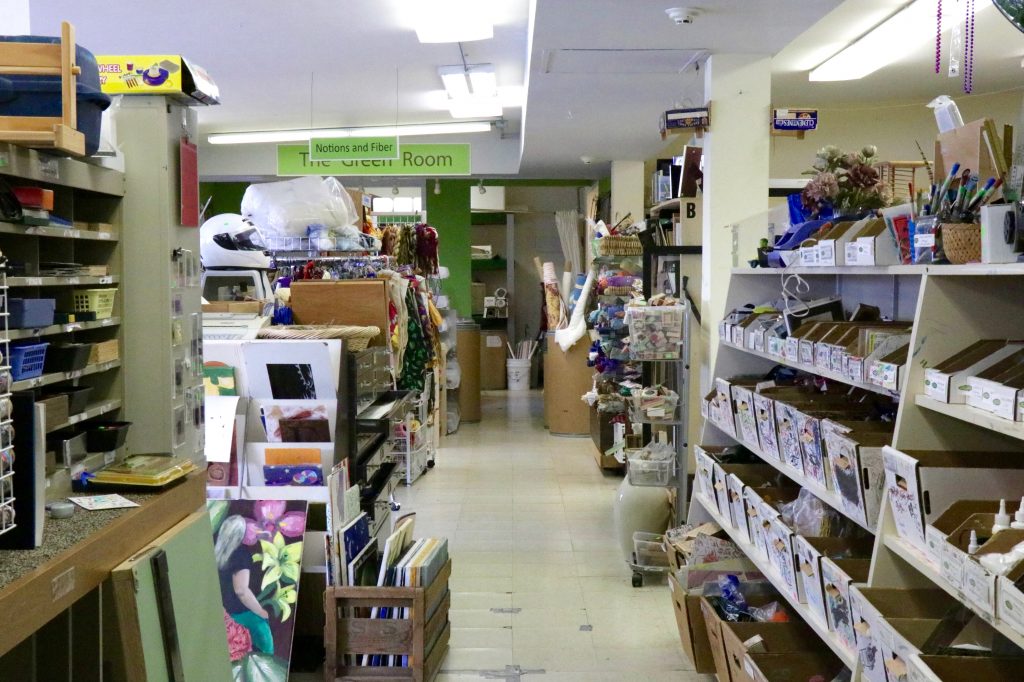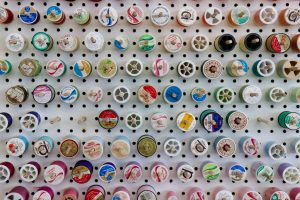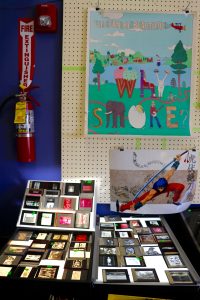 Jennifer Martin is ISTC’s Environmental Program Development Specialist.
Jennifer Martin is ISTC’s Environmental Program Development Specialist.
What was your background before coming to ISTC?
I was the senior program coordinator for the Illinois Green Economy Network (IGEN), my work included a wide range of experience in coordinating and evaluating sustainability programs for a network of 39 statewide Illinois Community College districts. Through this position, I frequently collaborate with various public, commercial, and non-profit partners to aggregate efforts, expertise, resources, and opportunities that focused on building renewable energy and energy efficiency programs for the network of colleges.
Prior to my work with IGEN, I had the opportunity to work as a project coordinator for a National Science Foundation/Advanced Technology Education (NSF/ATE) grant to help develop a solar market in the Midwest. Through this grant, I established, coordinated, and tracked efforts to implement a solar workforce development strategy for training programs, businesses, and local communities across the midwest.
In addition to my work advancing sustainability programs and initiatives at colleges in the midwest, I serve on the Board of Directors for the Midwest Renewable Energy Association, and am a training sub-team co-lead for the Illinois Solar for All Working Group. The Illinois Solar for All Working Group formed to bring the best practices and policies to the Illinois energy landscape that will serve to maximize benefits of the Future Energy Job Act for the economically disadvantaged households and communities that the programs are intended to serve.
What are your responsibilities here?
I work to identify and present emerging research needs, trendsetting ideas, policies, or technologies to examine, and assist ISTC with fostering collaboration and building partnerships as we track emerging issues relevant to water, energy, public health, and environment.
What do you do on a typical day?
Right now I’m working to address efforts to prepare the state for a glut of end-of-life solar photovoltaic (PV) panels, and ensure they are repurposed or recycled properly. ISTC is leveraging its resources by collaborating with its multidisciplinary team of experts to foster awareness with industry/business networks about this growing waste management challenge. Other responsibilities include bringing together the necessary stakeholders that are needed to develop PV end-of-life standards and a network of PV recyclers in Illinois while also looking to assist training providers in preparing a skilled workforce for this new and upcoming technical industry.
What is your favorite aspect of working here?
Working with a variety of talented, dedicated staff who are all passionate about preventing pollution, conserving natural resources, and reducing waste to protect human health and the environment.
What are some common misconceptions about your career?
Many people don’t get on the sustainability train due to the perception that it’s expensive. Efficiency is not always more expensive. People think it is, but it’s really not. In fact, sustainability will save you money in the long-run.
What are some challenges you’ve faced?
When it comes to coordinating business and educational components, it can be difficult to gather all the stakeholders involved and get everyone on the same page.
What work/project are you most proud of?
I coordinated a solar installation at a low-income school. ASHRAE (American Society of Heating, Refrigeration, Air Conditioning Engineers) was able to get $25,000 for the Lorenzo R. Smith Sustainability and Technology Academy in Pembroke Township, Illinois. We also installed a 5 kilowatt system at the school as well as education components with a focus on local sustainability activities.
In what ways do you incorporate sustainability into your life?
I live in a community called Stelle that was founded on sustainability. It includes Illinois’ first solar-powered phone company. On a day-to-day basis, I hang my clothes up to dry instead of using a dryer, I have an electric-powered lawn mower, and a drive a hybrid vehicle. I also garden, compost, and recycle.
What is your favorite topic in sustainability?
Energy and energy efficiency.







 The IDEA Store won’t be located at its current Springfield Avenue location for much longer. Morgan and team are in the process of transitioning the store to a new location at Lincoln Square Mall in Urbana. To accommodate an exponential growth in donations, the Lincoln Square storefront will be three times larger than the current location. This will allow excess items currently stored in the warehouses to be sold on the floor. The location also makes it much easier to donate materials. Instead of having to physically bring their donations in and hand them off to volunteers, customers will be able to drive around to the back of the mall and simply ring the doorbell to have their items collected. Keep an eye out for the new store, which has a target opening date of late October.
The IDEA Store won’t be located at its current Springfield Avenue location for much longer. Morgan and team are in the process of transitioning the store to a new location at Lincoln Square Mall in Urbana. To accommodate an exponential growth in donations, the Lincoln Square storefront will be three times larger than the current location. This will allow excess items currently stored in the warehouses to be sold on the floor. The location also makes it much easier to donate materials. Instead of having to physically bring their donations in and hand them off to volunteers, customers will be able to drive around to the back of the mall and simply ring the doorbell to have their items collected. Keep an eye out for the new store, which has a target opening date of late October. Jennifer Martin is ISTC’s Environmental Program Development Specialist.
Jennifer Martin is ISTC’s Environmental Program Development Specialist.